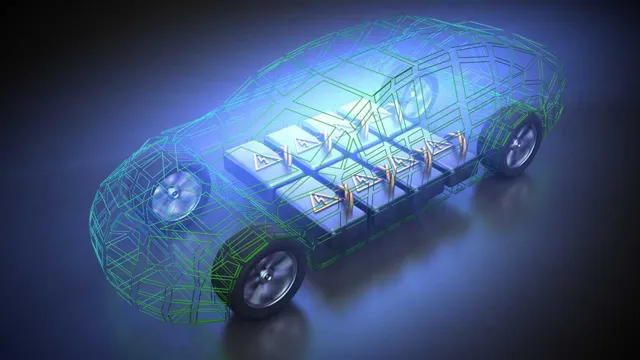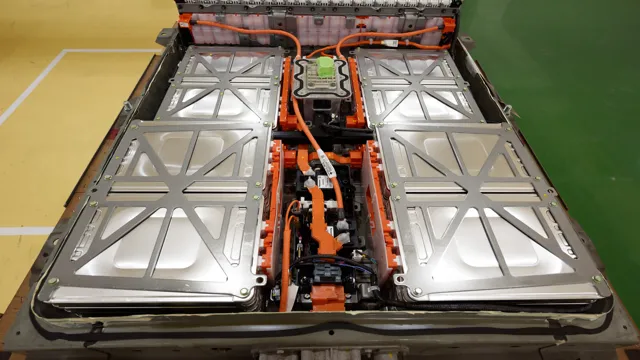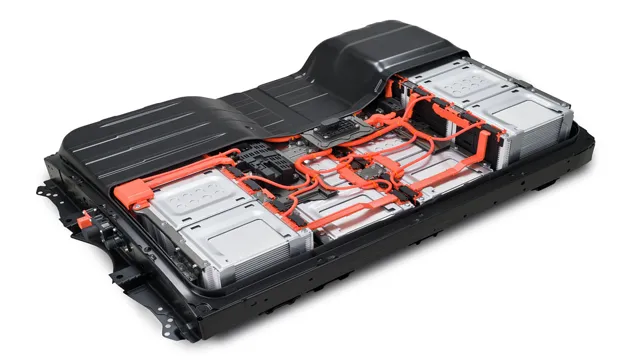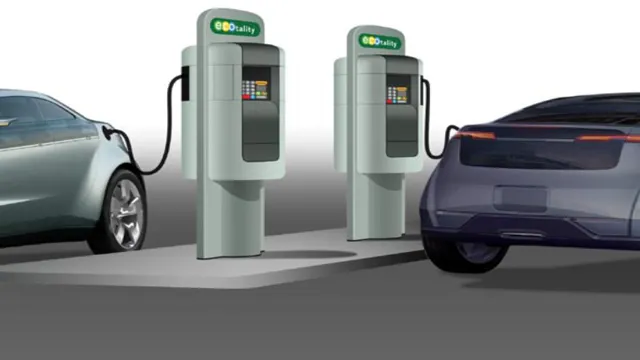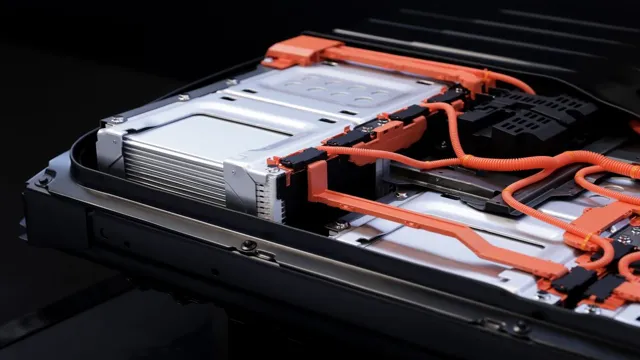How Much Does It Cost to Replace the Battery of an Electric Car? A Comprehensive Guide
Electric vehicles are growing in popularity as consumers look for more eco-friendly transportation options. However, one aspect that has posed a challenge for the EV market is the cost of electric car batteries. Electric car batteries can significantly impact the cost of an EV, and consumers often wonder if the investment is worth it compared to traditional gas-powered vehicles.
In this blog, we will explore the costs associated with electric car batteries and why prices vary. We will also examine the benefits of investing in an EV and why the long-term costs may outweigh the initial sticker shock. So, if you’re interested in understanding the ins and outs of electric car batteries, keep reading.
Introduction
When it comes to electric cars, one of the biggest concerns that car owners face is the cost of a new electric car battery. While electric cars offer numerous benefits such as lower fuel costs and fewer emissions, they tend to have a higher upfront cost than traditional vehicles. And since the battery is such an essential component of an electric car, it can make up a significant portion of the vehicle’s overall cost.
However, the good news is that the cost of electric car batteries has been steadily decreasing over the years, and it is expected to continue to do so in the future. Additionally, many car manufacturers offer warranties on their batteries, which provides added peace of mind to electric car owners. With these factors in mind, it’s important to consider the long-term cost benefits of owning an electric car, and not just focus on the initial purchase price.
The importance of battery costs
Battery costs have been a significant topic of discussion in recent years, particularly in the automotive industry. When it comes to electric vehicles, battery costs may represent a considerable portion of the overall price of the vehicle, which can significantly impact consumer adoption rates. For this reason, battery costs are a crucial factor to keep in mind when developing electric vehicles.
Additionally, cost-effectiveness is essential to ensure a sustainable future for renewable energy storage systems, such as solar power. As a result, the importance of reducing battery costs cannot be overstated. By reducing the cost of batteries, we can make electric vehicles and other energy storage systems more accessible, allowing for wider adoption and reducing the world’s dependence on fossil fuels.

Factors affecting electric car battery costs
Electric car battery costs depend upon numerous factors that include raw materials, manufacturing processes, and technological advancements. One of the most significant factors affecting the battery cost is the type of battery and its capacity. Lithium-ion batteries are currently the most popular and widely used type of electric car battery, but they’re also the most expensive.
The cost is due to the complex and sensitive production process that requires rare earth metals such as lithium, cobalt, nickel, and manganese. The depletion of these limited resources could increase costs in the future and make it harder to meet the surge in demand for electric vehicles. Additionally, the availability and cost of materials can change unpredictably, affecting the overall cost of electric car batteries.
Apart from this, advancements in technology and research and development can help reduce electric car battery costs over time. As battery capacity increases, the cost per unit of electricity storage reduces, enabling significant savings over time.
Average Costs
The cost of a new electric car battery can vary greatly, depending on the specific make and model of the vehicle. On average, a new electric car battery can cost anywhere from $5,500 to $15,000, with some higher-end models costing even more. That being said, many automakers offer warranties on their electric car batteries, which can help offset some of the costs of replacing a battery should it fail.
Additionally, some car manufacturers offer lease programs that allow drivers to pay a monthly fee for their battery, rather than purchasing it outright. While the cost of a new electric car battery may seem daunting at first, it’s important to keep in mind that these batteries typically last longer than traditional car batteries, making them a worthwhile investment in the long run.
The cost of a new electric car battery
Electric Car Battery, Average Cost If you’re in the market for an electric vehicle, you may be wondering about the cost of replacing the battery when it eventually wears out. On average, the cost of a new electric car battery can range from $5,500 to $15,000, depending on the make and model of the vehicle. However, keep in mind that many electric cars come with warranties that cover battery replacement for a certain number of years or miles.
Additionally, the cost of battery replacements has been steadily decreasing over the years, meaning that it may be more affordable to replace a battery in the future. It’s important to factor in the cost of battery replacement when considering the total cost of ownership of an electric vehicle, but it’s also important to remember that these vehicles have lower maintenance costs overall. With proper care and maintenance, an electric car battery can last for many years before needing to be replaced.
Cost comparison between EV models and brands
When it comes to choosing an electric vehicle, one of the biggest considerations is cost. On average, electric cars tend to cost more upfront than their gasoline-powered counterparts. However, in the long run, they can save you money on fuel and maintenance costs.
The average cost of an electric vehicle varies depending on the make and model. For example, the 2021 Tesla Model S starts at around $79,990, while the 2021 Chevrolet Bolt starts at around $31,99 Other popular electric vehicle models include the Nissan Leaf, Hyundai Kona Electric, and Volkswagen ID.
Some of these models are more expensive than others, but they all offer unique features and benefits that may appeal to different buyers. When comparing costs, it’s important to consider not only the sticker price but also factors like range, charging time, and available incentives and rebates.
In the end, choosing the right electric vehicle for your needs may require some research and careful consideration of both short-term and long-term costs.
Future Costs
The cost of a new electric car battery is a significant concern for potential buyers. While the initial purchase price of an electric vehicle may be higher than a traditional gasoline-powered car, one of the major selling points is their efficiency and lower running costs. However, the battery is the most expensive component of an electric car, and beyond the warranty period, it may need to be replaced at the owner’s expense.
The cost of a new electric car battery varies depending on the vehicle make and model. A Tesla Model S battery pack, for example, can cost upwards of $20,000 to replace, which is prohibitive for many car owners. However, as technology advances and electric car production increases, the cost of new batteries is expected to decrease over time, making electric cars a more appealing option for the average consumer.
The market is also expanding and offering rental options for electric car batteries as a way to offset the high cost of ownership.
Expected declines in electric car battery costs
Electric car battery costs are one of the biggest hurdles in the adoption of electric vehicles by the mainstream. However, the good news is that their prices are expected to decrease significantly in the future. As technology advances, economies of scale improve, and competition increases, battery prices will likely continue to decrease.
The estimated cost per kilowatt-hour (kWh) of batteries has fallen from around $1,000 in 2010 to about $137 in 2020. That’s a drop of over 80 percent in just ten years! Analysts predict that the decline will continue and that prices may fall to as low as $80/kWh by 202 This brings us closer to the “tipping point” where electric vehicles will become cheaper than gasoline-powered cars.
Once that happens, it’s only a matter of time before electric vehicles become the norm on our roads.
Impacts of technological advancements and innovation
As we continue to push boundaries with technological advancements and innovation, it’s important to consider the future costs. While new technology can bring numerous benefits, it also comes with a price tag. For example, the cost of implementing new software or hardware can be quite expensive.
It’s not just the initial purchase, but also the cost of training employees and maintaining the technology over time. Additionally, the rapid pace at which new technology emerges can make it difficult for businesses to keep up, leading to potentially high costs for continuous upgrades. As we look to the future, it’s critical to balance the benefits of new technology with the costs of adoption, maintenance, and upgrading.
Ultimately, it’s up to organizations to carefully weigh the costs and benefits of technological innovation and plan accordingly for a sustainable future.
Conclusion
While the cost of a new electric car battery may seem steep at first glance, it’s important to consider the long-term benefits. Not only are electric cars more environmentally friendly, but they also offer savings on fuel costs in the long run. Plus, as technology continues to advance, prices for electric car batteries are likely to decrease.
So, while it may seem like a shock to the wallet initially, investing in an electric car and its battery can ultimately lead to a brighter (and more affordable) future for both the planet and your wallet.”
FAQs
What is the average cost of a new electric car battery?
The cost of a new electric car battery can vary greatly depending on the make and model of the car. On average, it can cost anywhere from $3,000 to $7,000.
How long do electric car batteries last?
The lifespan of an electric car battery can vary depending on the usage and the climate in which the car is driven. However, most electric car batteries will last between 8-10 years.
Can electric car batteries be recycled?
Yes, electric car batteries can be recycled. The materials in the battery, such as lithium, cobalt, and nickel, can be extracted and reused in new batteries or other products.
Is it possible to upgrade an electric car battery?
In some cases, it is possible to upgrade an electric car battery. However, this is usually a costly and time-consuming process that may not be worth the investment. It’s best to consult with a professional before attempting a battery upgrade.
